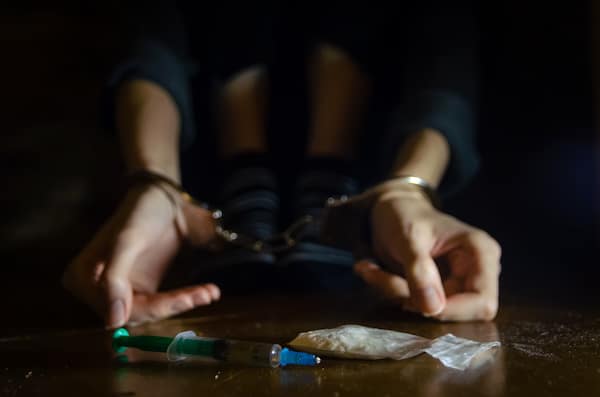Drug-related charges can have severe consequences in Michigan.
People are charged with drug offenses every day in Michigan. While some charges are considered more serious than others, any drug charge can significantly impact the lives of the accused.
In Michigan, drug trafficking and drug possession are two separate and distinct criminal offenses. Although both offenses involve illegal drugs, the penalties and consequences associated with each offense can vary significantly.
Types of drugs
Michigan establishes five schedules of controlled substances, with Schedule I being the most dangerous and Schedule V being the least dangerous. The schedules are as follows:
- Schedule I – Drugs with a high potential for abuse and no currently accepted medical use. Examples include heroin, LSD, and marijuana.
- Schedule II – Drugs with a high potential for abuse and a currently accepted medical use, and a risk of severe psychological or physical dependence. Examples include cocaine, methamphetamine, and oxycodone.
- Schedule III – Drugs with a moderate potential for abuse and a currently accepted medical use, and a risk of moderate or low physical dependence or psychological dependence. Examples include ketamine, codeine, and anabolic steroids.
- Schedule IV – Drugs with a low potential for abuse and a currently accepted medical use, and a risk of limited physical or psychological dependence. Examples include Valium, Xanax, and Ativan.
- Schedule V – Drugs with a low potential for abuse and a currently accepted medical use, and a risk of limited physical or psychological dependence. Examples include cough syrups with codeine and Lomotil.
Drug Offenses in Michigan
The two primary drug-related offenses in Michigan include drug possession and trafficking charges :
Drug possession charges
Drug possession charges in Michigan can be brought against individuals who knowingly possess illegal drugs or controlled substances. It applies to drugs found on your person, in your car, in your home, or on any property you own.
Misdemeanor drug possession charges typically involve the possession of marijuana. The penalties for misdemeanor drug possession can include fines and up to one year in jail.
Felonies typically involve drugs such as heroin, cocaine, or methamphetamine. A person convicted of felony drug possession can face up to several years in prison and significant fines.
Drug trafficking charges
Drug trafficking charges are a felony offense and often involve the manufacture, delivery, or possession with intent to deliver large quantities of drugs. Examples of trafficked drugs include cocaine, heroin, marijuana, methamphetamine, fentanyl, ecstasy, and prescription medication.
The penalties for felony drug trafficking can be severe and can include lengthy prison sentences of up to life and heavy fines.
How are penalties for drug offenses determined?
The penalties for both drug possession and trafficking depend on several factors, including the type and quantity of drugs involved, the person’s criminal history, and the intent behind the distribution. Charges can also be enhanced if the alleged crime happened in a “drug-free zone” such as a school or park.
There can also be other consequences for conviction on drug possession or drug trafficking charges, including difficulty finding employment or housing, the loss of professional licenses and the ability to own firearms, and damage to personal reputation.
Call an experienced criminal defense lawyer
Drug trafficking and drug possession charges in Michigan are serious criminal offenses that can carry severe penalties and significant consequences. That’s why you need an experienced criminal defense attorney on your side.
At Manley & Manley, we understand what’s at stake. That’s why we provide an aggressive defense for clients facing drug charges. If you were arrested in Flint, learn more about how we can help.
Contact us at 810-374-0240 to schedule a free case evaluation.


